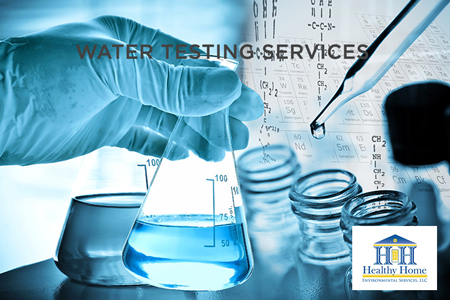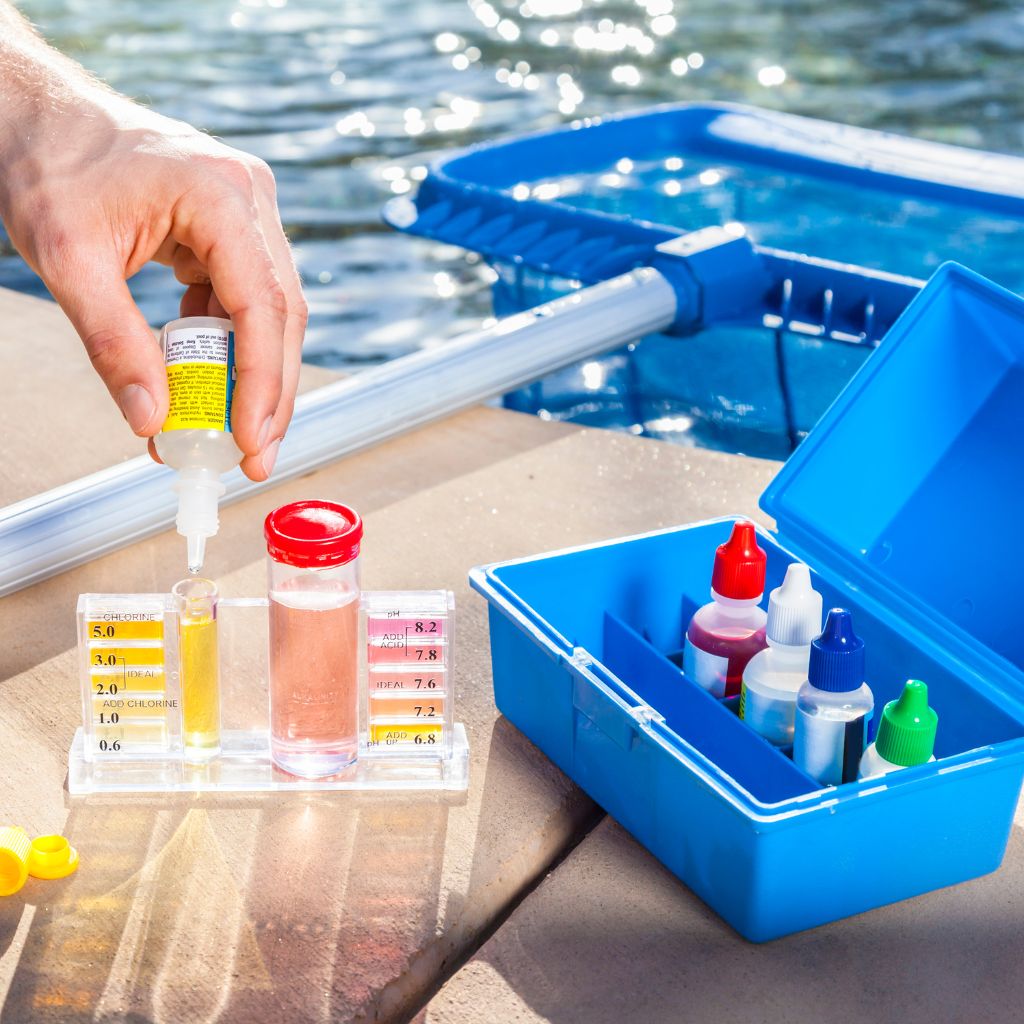Uncover the Advantages of Routine Water Examining for Long-Term Wellness Benefits
In a world where water is an essential need, the relevance of normal water testing can not be overemphasized. As we discover the extensive implications of water testing, one could wonder just how these techniques contribute to broader environmental and public health and wellness goals.

Identify Hidden Contaminants
Uncovering the presence of concealed impurities in water is critical for ensuring its security and quality. Routine water screening plays an indispensable function in determining these hidden pollutants, which might not be observable via sensory understanding.
Water screening utilizes sophisticated analytical methods to find and evaluate pollutants at minute concentrations. By doing so, it gives a comprehensive analysis of water top quality, recognizing potential risks before they escalate - Water Testing Service. This aggressive approach is necessary for guarding public health, as also reduced levels of certain pollutants can have destructive effects over long term exposure
Additionally, recognizing concealed pollutants facilitates informed decision-making for water treatment and administration techniques. Regular testing hence offers as an early warning system, enabling timely removal activities and fostering trust in the safety of water materials.
Stop Waterborne Conditions
Waterborne conditions pose a significant danger to public wellness, and normal water screening is an important action in avoiding their spread. Impurities such as viruses, microorganisms, and parasites can infiltrate water sources, resulting in ailments like cholera, giardiasis, and hepatitis A. These pathogens often go undetected up until an outbreak happens, emphasizing the significance of proactive actions.
Regular water testing provides a very early warning system, enabling the timely identification of harmful microorganisms before they reach unsafe levels. This positive method not just aids in applying restorative actions but additionally makes certain that water treatment procedures are working efficiently. By continually keeping track of water top quality, prospective health threats can be alleviated, and the spread of infectious diseases can be stopped.
In addition, water testing aids in preserving conformity with health and wellness and safety guidelines, which specify appropriate pollutant levels. Abiding by these standards is crucial for safeguarding public health and wellness and maintaining neighborhood count on. The information accumulated from routine screening offers as a trustworthy basis for making informed choices regarding water administration techniques. In final thought, regular water testing plays an important duty in protecting against waterborne illness, consequently improving the overall wellness and health of neighborhoods.
Protect At Risk Populaces
While routine water testing is critical for all, it is particularly crucial in protecting prone populations that are more susceptible to the unfavorable impacts of polluted water. These teams include infants, the senior, expecting women, and individuals with jeopardized body immune systems. Pollutants such as lead, nitrates, and microbial pathogens pose significant health dangers to these populaces, possibly leading to developmental problems, acute health conditions, or worsening of existing illnesses.

Newborns and children are especially in jeopardy because of their establishing bodies and greater usage of water about body weight. Direct exposure to pollutants like lead can lead to permanent developmental and neurological damage. Expectant women, also, face enhanced susceptability, as specific impurities can influence fetal development, leading to difficulties such as low birth weight or preterm distribution.
Senior people and those with weakened body immune systems are much more vulnerable to infections and might experience serious outcomes from waterborne virus. Routine water testing helps identify dangerous substances early, making sure prompt treatment to minimize risks. By focusing on the security of drinking water, we can safeguard these prone populaces, advertising healthier communities and minimizing healthcare worries connected with water-related diseases.
Enhance Water Preference and Smell
Improving water taste and odor can dramatically boost the total drinking experience and rise water consumption, which is crucial for keeping healthiness (Well water testing services). When water preferences and smells pleasurable, individuals are more probable to drink it regularly, consequently staying hydrated and supporting bodily features such as digestion, temperature level regulation, and joint lubrication. Routine water screening plays a crucial duty in keeping water top quality by determining pollutants that can affect preference and smell, such as chlorine, sulfur compounds, and natural materials
Water with unwanted characteristics can discourage usage and lead to the dependence on caffeinated or sweet beverages, which might have negative health implications. By carrying out regular tests, potential issues such as high mineral material or microbial contamination can be determined and remedied. This positive approach ensures that restorative measures, such as filtration or treatment, are carried out to improve water high quality.
Moreover, by addressing taste and smell problems immediately, communities can boost public rely on their water. This depend on encourages the intake of tap water over bottled options, supplying financial cost savings and reducing plastic Water Testing Service waste. As a result, regular water screening not only guarantees a enjoyable and safe alcohol consumption experience yet likewise cultivates much healthier lifestyle options (Water Testing Services Near Me).

Support Ecological Conservation
Routine water testing plays an important function in supporting ecological preservation by making sure the sustainability of water resources and ecological communities. By consistently evaluating the top quality of water bodies, potential pollutants can be determined and handled prior to they create considerable injury to marine life and surrounding habitats. This proactive method is important for keeping biodiversity, as many types count on clean water for survival and recreation.
Moreover, normal screening helps in the discovery of chemical spills, agricultural drainage, and industrial discharges, every one of which can bring about harmful influence on natural sources. Early discovery permits for prompt interventions, minimizing the long-term environmental damage and preserving vital environments. Furthermore, keeping an eye on water high quality contributes to the defense of alcohol consumption water supplies, guaranteeing they continue to be unpolluted and secure for human intake.
In addition, water testing data can educate plan decisions and preservation initiatives. Eventually, routine water screening is an important tool in the pursuit of environmental preservation and sustainability.
Final Thought
Routine water screening is important in preserving public health and wellness by recognizing hidden impurities and stopping waterborne diseases, specifically among susceptible populaces. By embracing a proactive approach to water top quality, neighborhoods can make sure lasting health and wellness benefits and develop depend on, eventually advertising a much safer and much healthier living setting.
In a globe where water is a fundamental need, the relevance of routine water screening can not be overemphasized.While routine water screening is vital for all, it is specifically essential in safeguarding susceptible populaces that are extra vulnerable to the negative effects of contaminated water.Improving water taste and odor can substantially improve the total drinking experience and boost water intake, which is important for preserving great health. Normal water testing plays a critical duty in preserving water top quality by recognizing contaminants that can influence taste and odor, such as chlorine, sulfur substances, and organic products.
Regular water testing plays an essential duty in supporting ecological preservation by guaranteeing the sustainability of water sources and ecological communities.